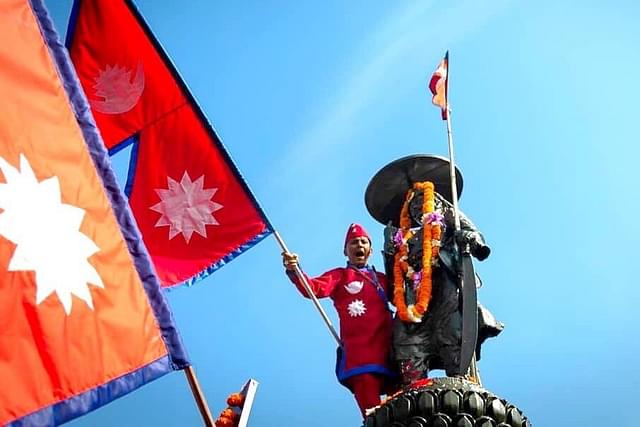
In the heart of the Himalayas, a political storm is brewing. The streets of Kathmandu, Nepal's capital, are echoing with a call for the return of the monarchy. After Nepal became a republic in 2006, many Nepalis hoped for a brighter future. But years later, frustration is mounting, and some see the exiled king as the solution to the country's problems.
This potential shift has massive implications for Nepal's neighbors – India and China. India has had a complex relationship with Nepal, sometimes warm, sometimes strained, but the two countries have long been bound by history and culture. China, on the other hand, has been steadily increasing its influence in Nepal through economic and military investments.
Nepal's Rocky Road to Republic
Sixteen years ago, Nepal's King Gyanendra seemed out of touch. He seized power, clamped down on freedoms, and faced widespread protests. The people won, and Nepal became a republic, casting aside what many saw as an outdated monarchy. But the dream of a stable democracy has proved elusive as corruption and political infighting have plagued Nepal's new government.India's Dilemma, China's Opportunity
India and Nepal are bound by geography, religion, and shared history. Their armies have fought side-by-side, most notably with the legendary Gurkha regiments. Yet, recent years have seen Nepal drift away. India's sometimes heavy-handed approach and missteps like the recent 'Agniveer' military recruitment controversy, which left out the Gurkhas, have created an opening for China.China has been quick to sense the opportunity. High-level delegations have swept into Nepal, offering deals and promises. While China's motivations are a mix of economic and strategic interests, one thing is clear: a Nepal firmly under China's sway would be a major setback for India.
The Military Factor
Military ties are a critical piece of the puzzle. Historically, China's military connections to Nepal have been limited. The 1950 India-Nepal friendship treaty and Nepal's reliance on India for military equipment and training were major obstacles for China. However, Nepal's move towards a republic, followed by anti-China protests before the Beijing Olympics, triggered a shift in China's approach.Now, China is pushing to sign deals to sell armored vehicles, set up an ammunition factory, and revive joint military exercises – all aimed at increasing its military footprint in Nepal. This puts India in a tricky spot: how to balance countering China's advances without appearing as an overbearing big brother?
Questions for India
Nepal's internal turmoil raises urgent questions for India:- Wooing Back Nepal: How can India mend fences and rebuild the deep trust it once shared with Nepal?
- Supporting the King? (Or Not): If Nepal does revert to a monarchy, would it be a friendlier neighbor? History suggests yes, but it's a gamble.
- The Gurkha Factor: Can India reverse the damage done by the 'Agniveer' policy and address Gurkha concerns?
- Balancing Act: How can India help Nepal economically without fueling resentment?
- A Secure Border: Can India shed its 'Big Brother' image and secure its borders by treating Nepal as an equal partner?
The Bottom Line
India has taken its relationship with Nepal for granted for too long. It's time for some serious soul-searching and a reimagined approach.Nepal is a key buffer against Chinese expansion. Losing its loyalty to Beijing would significantly alter the power dynamics in the entire Himalayan region.
